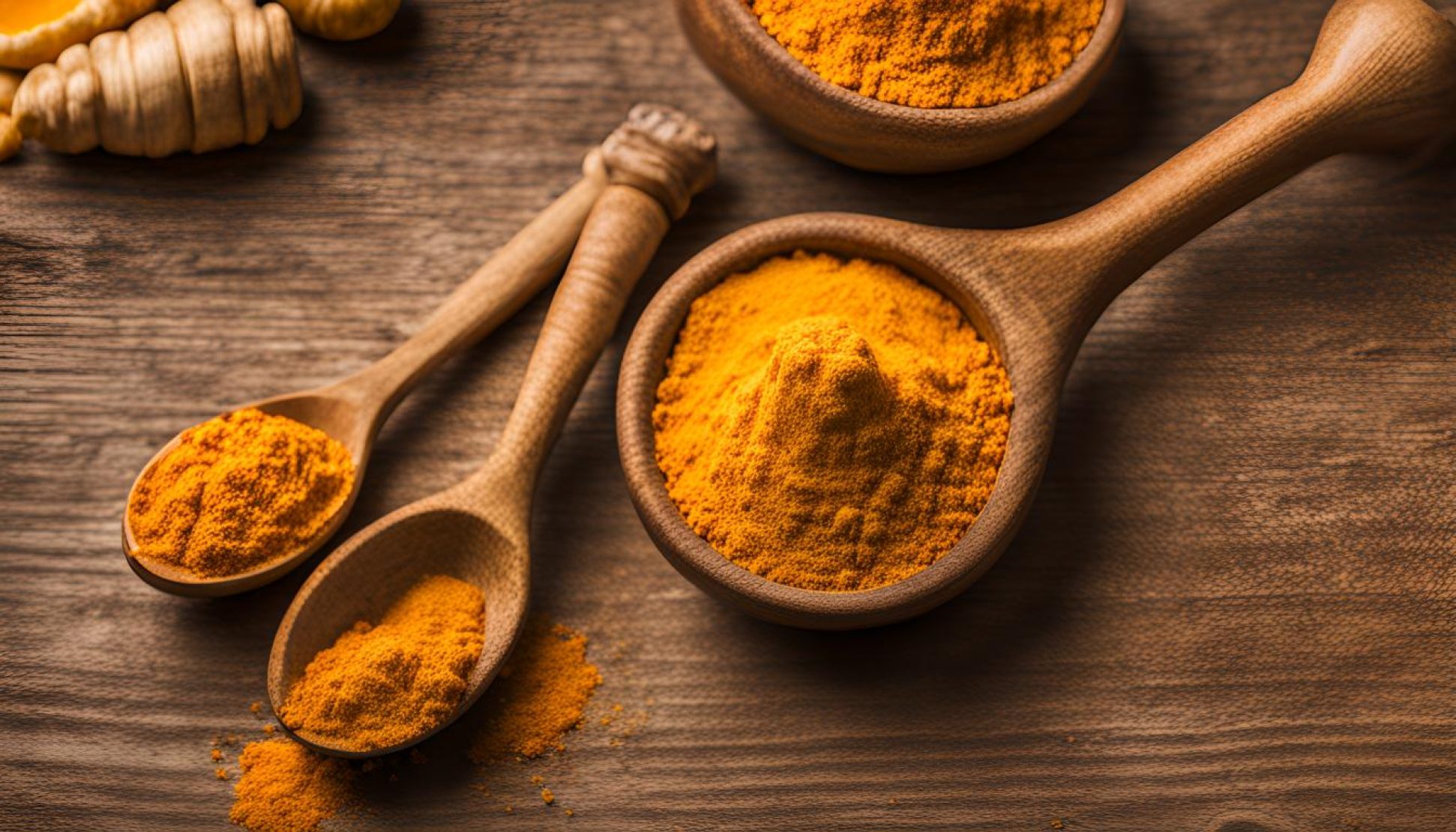Turmeric, a golden-yellow spice widely known for its vibrant color and distinct flavor, has been a cornerstone of traditional medicine for centuries. Originating from the roots of the Curcuma longa plant, turmeric is not just a kitchen staple but a superfood loaded with health benefits. Incorporating turmeric into your diet can significantly boost your health and wellness. In this article, we delve into the myriad benefits of turmeric, explore how it enhances overall wellness, and provide tips on integrating this powerful ingredient into your daily diet.

Health Benefits of Turmeric in Your Diet
1. Anti-inflammatory Properties
Inflammation is the body’s natural response to injury or infection, but chronic inflammation can lead to numerous health issues, including heart disease and cancer. Turmeric contains curcumin, a compound with potent anti-inflammatory effects. Studies have shown that curcumin can match the effectiveness of some anti-inflammatory drugs, without the side effects. By reducing inflammation, turmeric helps in preventing and managing inflammatory diseases, making it a key ingredient for health and wellness .
2. Antioxidant Powerhouse
Turmeric is rich in antioxidants, which play a crucial role in protecting the body from oxidative stress and free radical damage. Curcumin, the primary active component in turmeric, neutralizes free radicals and stimulates the body’s own antioxidant defenses. This dual action helps in combating cellular damage and reduces the risk of chronic diseases such as cancer, diabetes, and neurodegenerative disorders .
3. Improves Brain Function
Curcumin has been shown to boost levels of brain-derived neurotrophic factor (BDNF), a growth hormone essential for brain function. Low levels of BDNF are linked to mental health issues such as depression and Alzheimer’s disease. By increasing BDNF levels, turmeric can enhance cognitive function, improve memory, and reduce the risk of brain-related diseases .
4. Supports Heart Health
Cardiovascular diseases are the leading cause of death worldwide. Turmeric can improve heart health by improving the function of the endothelium, the lining of the blood vessels. Curcumin also helps in reducing inflammation and oxidation, both of which are key contributors to heart disease. Regular consumption of turmeric can lower the risk of heart disease and promote overall cardiovascular health .
5. Aids in Digestion
Turmeric has been used in traditional medicine to treat digestive disorders. It stimulates bile production, which is essential for the digestion of fats. Turmeric also has carminative properties, which help in relieving bloating and gas. Including turmeric in your diet can improve digestion and alleviate symptoms of irritable bowel syndrome (IBS) and other digestive conditions .
6. Boosts Immune System
The immune-boosting properties of turmeric can be attributed to its anti-inflammatory, antioxidant, and antimicrobial effects. Curcumin enhances the body’s immune response, helping to fend off infections and diseases. Regular consumption of turmeric can strengthen your immune system and keep you healthy year-round .
7. Promotes Skin Health
Turmeric is beneficial for the skin due to its anti-inflammatory, antimicrobial, and antioxidant properties. It can help in treating skin conditions such as acne, eczema, and psoriasis. Turmeric also promotes wound healing and can improve the overall appearance of the skin by reducing dark spots and hyperpigmentation .
8. Supports Joint Health
Curcumin’s anti-inflammatory properties make it effective in reducing symptoms of arthritis and other joint-related conditions. Studies have shown that curcumin can reduce joint pain and improve mobility in people with osteoarthritis and rheumatoid arthritis .
How to Use Turmeric for Wellness
Incorporating Turmeric into Your Daily Diet
Adding turmeric to your diet for health improvement is easier than you might think. Here are some simple ways to include this superfood in your daily meals:
- Golden Milk: A warm, soothing beverage made with milk (or a dairy-free alternative), turmeric, black pepper, and other spices like cinnamon and ginger. Golden milk is a delicious way to reap the health benefits of turmeric.
- Smoothies: Blend turmeric powder or fresh turmeric root into your morning smoothie for a nutrient-packed start to your day.
- Curries and Soups: Turmeric is a key ingredient in many Indian and Southeast Asian dishes. Adding turmeric to curries, soups, and stews not only enhances the flavor but also boosts the nutritional value.
- Turmeric Tea: Also known as turmeric latte or golden tea, this beverage combines turmeric with hot water, honey, and lemon for a refreshing drink that supports wellness.
- Spice Blends: Incorporate turmeric into spice blends for seasoning meats, vegetables, and grains. It pairs well with black pepper, cumin, coriander, and other spices.
- Baking: Add a teaspoon of turmeric to your baked goods, such as muffins, bread, or cakes, for a unique flavor and health boost.
Tips for Maximizing Turmeric Benefits
To maximize the health benefits of turmeric in your diet, consider these tips:
- Combine with Black Pepper: Piperine, a compound found in black pepper, enhances the absorption of curcumin. Always pair turmeric with black pepper to increase its bioavailability.
- Use with Healthy Fats: Curcumin is fat-soluble, meaning it is better absorbed when consumed with fats. Cook turmeric with coconut oil, olive oil, or ghee for improved absorption.
- Fresh vs. Powdered: Both fresh turmeric root and turmeric powder offer health benefits. Fresh turmeric has a more potent flavor and higher levels of curcumin, but turmeric powder is more convenient for daily use.
- Consistent Consumption: Incorporate turmeric into your diet regularly to experience its full benefits. Consistency is key to reaping the long-term health and wellness advantages of turmeric.
Conclusion: The Role of Turmeric in a Healthy Diet
Turmeric is more than just a spice; it’s a superfood that plays a significant role in promoting health and wellness. From its powerful anti-inflammatory and antioxidant properties to its ability to improve brain function and support heart health, turmeric is a valuable addition to any diet. By integrating turmeric into your daily meals, you can enhance your overall wellness and enjoy the myriad health benefits this golden spice has to offer.
References
- National Center for Biotechnology Information (NCBI)
- Healthline – Curcumin: A Review of Its’ Effects on Human Health
- WebMD – Turmeric
- Mayo Clinic – Dietary Supplements: What You Need to Know
- Journal of Medicinal Food – Turmeric and Curcumin: Biological Actions and Medical Applications
- PubMed Central (PMC) – Curcumin: A Review of Its’ Effects on Human Health
- NIH – National Center for Complementary and Integrative Health
- Arthritis Foundation – Turmeric & Curcumin
By making turmeric a part of your daily diet, you can unlock its full potential and enjoy better health and wellness. Whether you sprinkle it on your food, mix it into drinks, or take it as a supplement, the benefits of turmeric are undeniable and far-reaching









